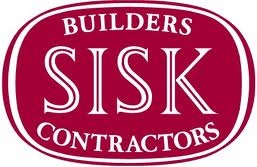
Call and contact centres can be challenging environments. For agents, during times of peak demand, the pace of call handling can be quite stressful. This can be exacerbated when customers call, expressing dissatisfaction with some aspect of your products or services.
This is likely to be expressed somewhere on the ‘unhappiness spectrum’. If ‘mildly irritated’ is at one end, ‘absolutely fuming’ could well be at the other. For agents, dealing with such calls can be one of the toughest challenges of the job.
However, preparing agents by coaching them in call centre dispute resolution and de-escalation techniques helps to alleviate the stress and provides a route to allow them to take control. When done well, such interactions with customers are opportunities to turn potentially negative experiences into positive ones.
Here we’ll outline key techniques for call centre dispute resolution and de-escalation and highlight the pivotal role that Quvu’s industry-leading integrated call recording plays in this process.
1. Active listening
One of the most important call centre de-escalation techniques for dealing with unhappy customers is active listening. Encourage your agents to let a caller speak and to listen to what the customer is saying. Allowing irate callers to express their concerns and frustrations fully means they feel they have been heard. This helps defuse their anger and create a platform for the call to progress more positively.
2. Empathy and understanding
It is important for your agents to show empathy towards the customer’s situation. Even when an agent may disagree, understanding the caller’s perspective often helps to calm the tensions that characterise call centre dispute resolution. Agents should explicitly let the customer know that they genuinely care about finding a solution.
3. Stay calm
In emotionally charged situations, for effective call centre de-escalation that defuses a situation, it’s crucial for your agents to remain calm. Emotion can be contagious, with one side reacting to an emotion expressed by the other. Your agents should avoid being drawn in on an emotional level by remaining composed and professional. This can help to de-escalate even the most heated exchanges. An angry customer’s frustration is rarely personal, it is most likely a result of the situation.
4. Avoid negative language
Encourage your agents to use positive and neutral language. Negative language can exacerbate conflicts, while positive language can help guide conversations towards resolution. Train your agents to rephrase negative statements into constructive ones. For example, avoid saying what cannot be done and focus on what can be done to address the situation.
5. Offer solutions
Customers want solutions to their problems. Empower your agents to explore potential solutions and present them to the customer. Even if the immediate solution isn’t ideal, immediately demonstrating a willingness to work towards a resolution is often the fastest way to prevent a call from going from bad to worse!
6. Manage expectations:
Ensure that your agents set realistic expectations for customers. If achieving a resolution is going to take time, communicate this clearly. Overpromising and underdelivering is a cardinal sin that may invite even greater cause for complaint and upset later on.
Role play is a great way to allow your agents to practise in readiness for the real world. Armed with these few simple techniques for call centre dispute resolution your agents will be better prepared. However, there’s much more to conflict resolution and de-escalation than just dealing reactively with each specific case in isolation.
There is strategic value attached to dispute resolution and call centre de-escalation because it allows your business to learn more about customers, agents, and processes, as well as its products and services.
Call recording is an invaluable tool for releasing this strategic value from dispute resolution and de-escalation. Here’s how Quvu’s call recording feature contributes to this process:
1. Impartial record keeping
Quvu call recording provides an uncoloured record of customer interactions. When conflicts arise, you have a definitive account of what was said by whom and how the conversation unfolded. This eliminates ambiguity and bias, helping to resolve disputes quickly and more effectively.
2. Training and feedback
Quvu call recordings are a valuable training resource that lets businesses, as well as individuals, learn. By reviewing recorded calls, you can identify areas where agents may need additional training. These recordings provide real-life examples of both successful and challenging interactions, enabling you to offer targeted coaching and feedback to your agents.
3. Arbitration and resolution
When conflicts escalate, Quvu call recording is a powerful tool for managers and supervisors. It allows the review of recorded conversations to understand the context, assess the situation objectively, and determine the best course of action. This ensures that resolutions are fair and consistent.
4. Quality assurance
Quvu call recording is a cornerstone of quality management in a call or contact centre. Recorded calls let you evaluate whether agents are adhering to policies and guidelines that you are likely to have established for call centre dispute resolution and de-escalation. Are your agents actively listening, staying calm, and offering solutions? Reviewing these recordings allows you to maintain high-quality service standards.
5. Compliance and legal protection
Call and contact centres operating in regulated industries rely on Quvu call recording for compliance purposes. It ensures that agents are following legal and industry-specific guidelines during customer interactions. In cases of legal disputes, call recordings serve as essential evidence.
Quvu’s call recording feature is an industry-leading market offer. Unlimited call recordings are retained for 6 years as part of our standard service without any additional charges, a deal that is unrivalled in the VoIP call and contact centre platform market.
Leverage complaint management for strategic advantage by using Quvu’s call recording to support call centre dispute resolution and de-escalation in your contact centre.
Book a personalised demo to see what Quvu can do for your contact centre. Get in touch, call us on 03333 4455 90 or email sales@quvu.co.uk




